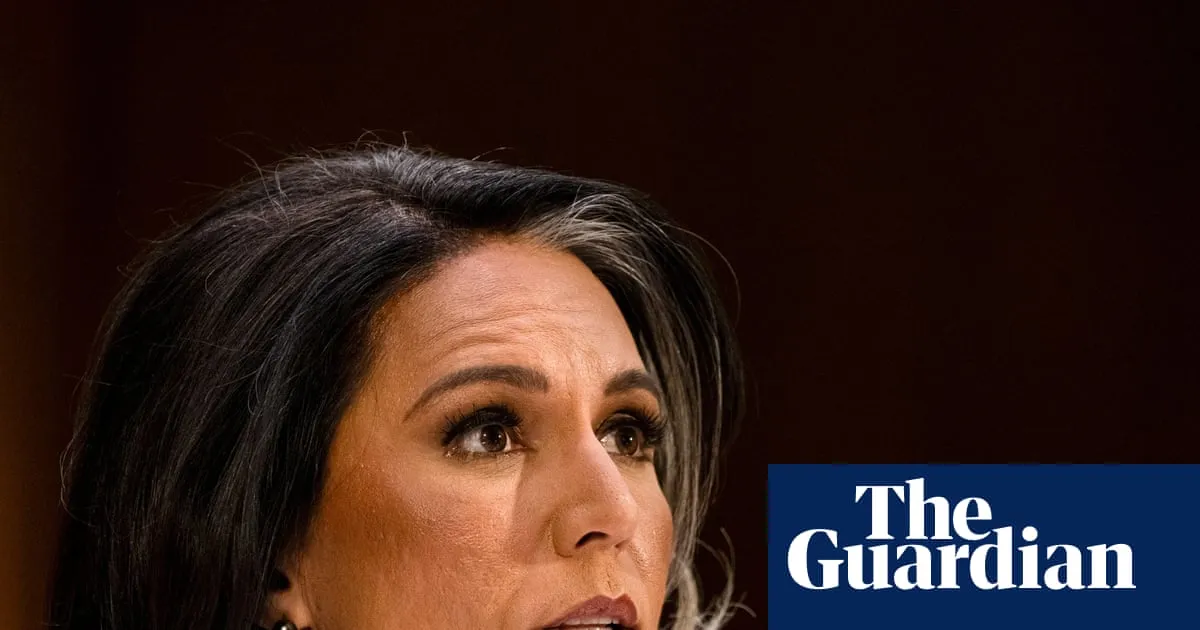
Tulsi Gabbard, the former Democratic member of Congress and current director of national intelligence, has made explosive accusations against former President Barack Obama and senior officials from his administration. Gabbard claims they should be prosecuted for what she describes as a “treasonous conspiracy” aimed at undermining Donald Trump’s victory in the 2016 presidential election. According to her, this conspiracy was designed to falsely assert that Trump's win was the result of Russian interference.
Gabbard asserts that Obama and his administration laid the groundwork for a “years-long coup” against Trump. She accuses them of manufacturing intelligence that suggested Russia attempted to influence the election outcome. Central to her claims is the use of a dossier compiled by British intelligence analyst Christopher Steele, which Gabbard argues was known to be unreliable by those who utilized it.
In her remarks, Gabbard highlighted a stark contrast between post-election intelligence estimates and pre-election findings. While the former suggested Russian interference, the latter indicated that there was likely no attempt to influence the election. “The information we are releasing today clearly shows there was a treasonous conspiracy in 2016 committed by officials at the highest level of our government,” she stated.
In her passionate appeal, Gabbard emphasized the need for accountability: “No matter how powerful, every person involved in this conspiracy must be investigated and prosecuted to the fullest extent of the law, to ensure nothing like this ever happens again.” She underscored that the American people’s trust in the democratic process is at stake, and that the future of the nation depends on holding these officials accountable.
Gabbard has begun forwarding documents to the Justice Department that she claims support her allegations. These include a partially redacted intelligence community assessment from the Obama administration regarding cyber threats to the 2016 election, as well as a collection of previously classified memos. Notably, some of these documents originate from James Clapper, who served as Obama’s director of national intelligence.
Among those Gabbard names as implicated in this alleged conspiracy are several high-profile officials: John Brennan, the former CIA director; John Kerry, the former Secretary of State; Susan Rice, the national security adviser at the time; and Andrew McCabe, the then-deputy FBI director. Gabbard has specifically called out Obama himself as a key figure in this supposed plot.
This renewed focus on the Russia investigation comes at a time when Trump is embroiled in a scandal related to the late financier Jeffrey Epstein, who died in prison while awaiting prosecution on sex-trafficking charges. The Trump administration is under increasing pressure from supporters of his Make America Great Again (MAGA) movement to disclose files related to Epstein, including a rumored list of his influential clients.
In response to these pressures, Trump has dismissed claims about the existence of such files, suggesting they were fabricated by Obama and members of his administration, including James Comey and Joe Biden.
Accompanying her release of Obama-era memos, Gabbard includes language that mirrors the rhetoric often used by Trump and his supporters to describe what they see as a conspiracy to discredit his 2016 victory. One memo, dated December 9, 2016, claims that “Deep State officials in the intelligence community began leaking blatantly false intelligence to the Washington Post,” alleging that Russia used “cyber means” to influence the election outcome.
Further, the document alleges that on January 6 of the following year, the Obama administration shared a public assessment that falsely claimed Putin directed efforts to assist Trump in defeating Clinton. This assessment purportedly overlooked earlier findings that suggested Russia lacked the intent or capacity to interfere in the election.
The controversial Steele dossier, which included sensational claims about Trump, was integral to the lengthy investigation led by Robert Mueller. Mueller's report ultimately concluded that while Russia did interfere in the election, it “did not establish that members of the Trump campaign conspired or coordinated” with Russian activities.
As the political landscape continues to evolve, the implications of Gabbard's claims and the ongoing discourse surrounding the 2016 election remain pivotal in shaping public opinion and trust in the U.S. democratic process.